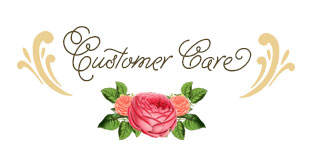Selenium/White Muscle Disease
SELENIUM: ITS ROLE IN LIVESTOCK HEALTH AND PRODUCTIVITY
-
Journal of Agriculture and Environment
-
Corpus ID: 32293329
Selenium (Se) is an essential metalloid trace element that has a very narrow margin of safety between the toxic and deficient doses in animals and humans. This paper highlights about the beneficial and harmful effects of Selenium in livestock productivity and health.
Globally: selenium deficient soils are far more widespread than are seleniferous ones. Animal health is affected by selenium deficiency or excess in the diet,
Deficiency of selenium in animals may result in a wide variety of clinical signs. Selenium in the form of selenoproteins is critical in the formation of thyroid hormones and other endocrine systems. Adequate selenium levels have also been shown to be necessary for normal spermatogenesis.
Caution: Addition of too much selenium to feeds, improper uses of selenium containing injectable or feeding livestock forages or feed grown in soils rich in selenium can result in selenium poisoning.
Selenium poisoning should be generally suspected based upon a variety clinical signs including weight loss, poor growth rates, lameness, defective hoof growth, horizontal ridges or cracks in the hoof wall, hair loss, infertility and acute deaths especially when errors are made in mixing of selenium into animal feeds or overdosing injectable selenium products. A garlicky odor on the animals’ breath may be detected.
That being said, Selenium is necessary for growth and fertility in animals, neutrophil and lymphocyte function, and antibody production.
-
Clinical signs of selenium deficiencies in animals, birds and humans include reduced appetite, growth, production, and reproductive fertility, a general unthriftiness, and muscular weakness.
Survey of U.S. state veterinarians and state veterinary diagnostic laboratories revealed that selenium deficiency diseases were diagnosed in 46 states and were reported to be an important livestock problem in regions of 37 states of the USA (Edmondson, et al., 1993).
IN CONCLUSION: SELENIUM DEFICIENCY IS MORE OF A PROBLEM GEOGRAPHICALLY THAN IS SE TOXICITY.
Deficiency symptoms include poor growth rate, kids being unable to suckle, white muscle disease (cardiac and skeletal muscles have white spots), sudden death by heart attack, progressive paralysis and retained afterbirth. In goats, this mineral is responsible for brain and thyroid health, muscle development and reproductive health.
-
Because this nutrient is available in the soil, goats kept in smaller pastures and fed mostly hay are at a higher risk for selenium deficiency.
HOW OFTEN DO YOU GIVE SELENIUM TO GOATS?
Washington State University Animal Ag states for goats,
-
once every 30 days
-
Each 2 ml dose contains guaranteed max 23.2 mcg selenium and min 200 IU vitamin E.
-
Dosage: Newborn - 2 ml (BoSe given by injection & is Vet Prescription only); Adult - 4 ml; use once every 30 days.
- Personally, I use Santa Cruz Selenium pellets as directed on the package. I only give BoSe injections in the last 2 weeks before a doe kids.
- Ideally, see if your soil is deficient in selenium. You can find a map to see your general soil amounts here: Selenium Map.
Selenium Deficiency in Adult Goats
Selenium deficiency in adult goats is most commonly seen in reproductive problems. This means that they:
- Have poor conception rates
- Experience abortions, stillbirths, and miscarriages
- Retained placentas
- Deliver weak, selenium deficient kids
The main thing to remember is, that if you have a kid born who is weak and unable to stand- especially if their ankles are bending back- then you are dealing with selenium/vitamin E deficiency and they need treatment immediately and help eating until they are strong enough to stand on their own.
Personally, I have the Vet prescription injectible BoSe and give to all does the week before kidding. Next time you go to your Vet for something, ask for a bottle of BoSe to keep in your refrigerator, on hand. He/she will write the prescribed dosage on the prescription. If you have kids born and they are have difficulty standing and legs are bending like rubber, they need a small injection of BoSe and it will clear up within a few hours.



©2026 AppleJo Farms. All rights reserved.
Powered by Boutique Store Builder . Web Design by Avalon Rose Design.
Powered by Boutique Store Builder . Web Design by Avalon Rose Design.

